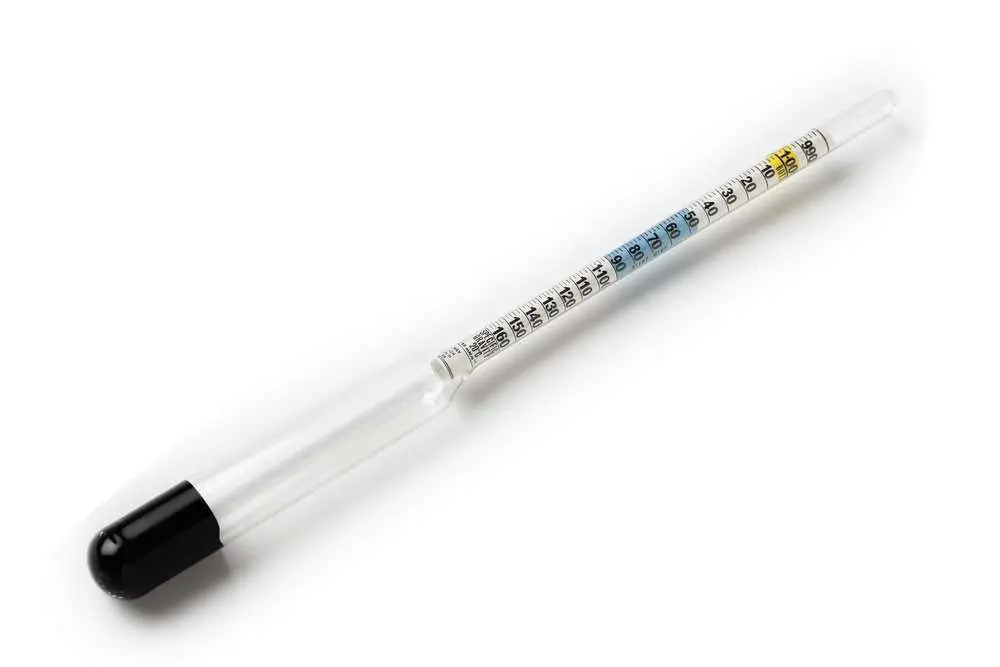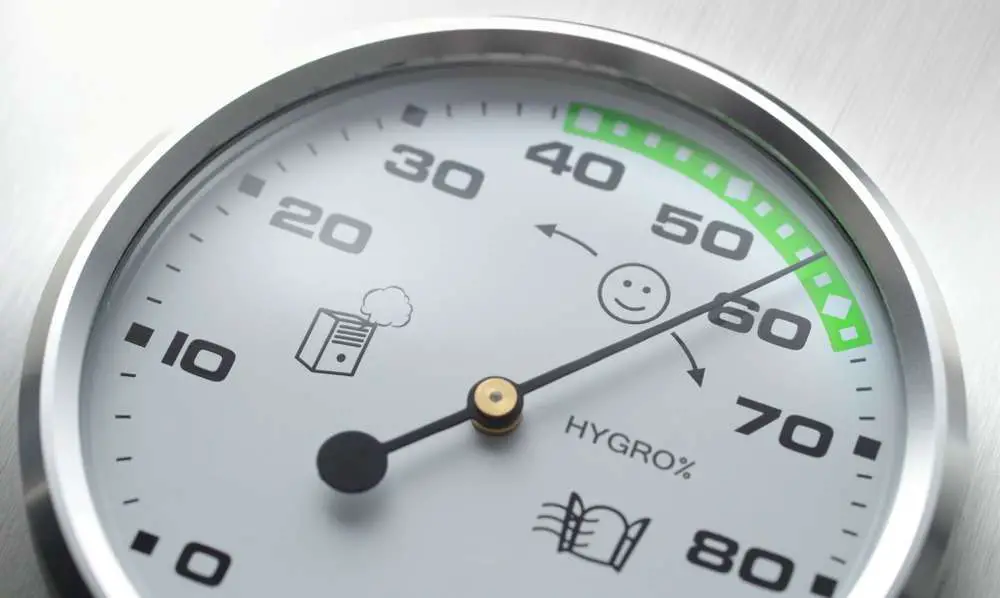- You are here:
- Home »
- Blog »
- Frequently Asked Questions »
- Hygrometer vs. Hydrometer: What is the Difference?
Hygrometer vs. Hydrometer: What is the Difference?

Many people don’t know the difference between hydrometers and hygrometers, the 2 words sound alike, but the devices are different. However, not many are aware of the function of either device. This leads us to the hygrometer vs. hydrometer debate.
A hygrometer measures the moisture in the air, while the hydrometer measures a liquid’s density. Besides the 2 devices having different functions, they also operate in different ways. The hygrometer is an automatic device that works when turned on, while the hydrometer relies on the user.
We look at this debate a bit more by highlighting the use of each of the devices and their key differences.
Table of contents
What is a hydrometer used for?

A hydrometer is a device used to calculate the density of a liquid, it shows how heavy the liquid is, compared to the liquid it’s measured against.
The device uses the concept of flotation. If you place a liquid inside a jar of water, it will either sink or float. If it sinks, it displaces or forces water upwards. The amount of water forced up is equal to the weight of the liquid. The liquid floats if the upward force is equal to or less than the weight of the water.
Hydrometers have 2 parts; a weighted bulb and a cylinder stem.
They come with a hydrometer jar.
How to use a Hydrometers
Here is how you use it:
- Pour the liquid you want to test into the hydrometer jar.
- Stir the liquid gently to get rid of any bubbles in the liquid.
- Holding the hydrometer from the top, slowly place it into the jar of liquid. Lower the device to the point of equilibrium, the moment it floats in the liquid.
- Gently push the device down and let it come back to equilibrium again.
- Now, take the reading.
A lot of people make errors when noting the density. To take the reading, go down to the liquid surface, the top-most horizontal point, against the hydrometer, note that down.
What is a hygrometer used for?

A hygrometer is a device used to determine humidity or the amount of water present in the air. The ideal humidity level for a home is between 30% and 50%. Levels above or below this result in health concerns.
When humidity is lower than 30% for an extended period, you can expect the following symptoms:
- Dry skin
- Dry and irritated eyes
- Drying of the mucous membrane results in a cold or flu.
While exposure to humidity over 60% for an extended period leads to the following:
- Sneezing and coughing
- Fever or flu
- Severe attacks of allergies and asthma
- Shortness of breath
More homeowners have started to use the device. You also find them in saunas and museums. It helps keep humidity in check in these locations.
You can find four different types of hydrometers in the market. They all have different ways of operation but measure the same thing, the level of moisture in the air.
The comparison between hydrometer and hygrometer
Let’s look at the 2 devices for comparison purposes.
Hydrometer
- Have been around since the 5th century
- Used to determine the density of a liquid
- The user has control over the use of the device, making it easier to control accuracy. But, the device needs to be clean and properly immersed in the liquid for accuracy
Hydrometer
- Have been around since the 15th century
- Used to determine humidity, moisture in the air
- The device operates on its own, factors such as temperature and pressure may lead to inaccurate readings
Hygrometer vs. hydrometer: The key differences
The only similarity between the 2 devices is that they help you measure something. Both of them are very different in their make and how they operate.
The differences are as follows:
- A hydrometer is a device used to measure the density of a liquid while a hygrometer measures humidity.
- The user has little to no control over the hygrometer. The device functions on its own, once you turn it on. But, with the hydrometer, you as the user have some control over it. You have to immerse the device in the liquid and ensure it comes to the point of equilibrium.
- Human error is a concern with hydrometers, especially if you aren’t used to using them since they depend on the user. Human error is not a concern with hygrometers.
- You commonly find hygrometers in homes today. Hydrometers are less common.
Final thoughts
You now have a better understanding of hygrometers and hydrometers and the difference between the 2 devices. The concept of the 2 may be old, but they are still relevant today.
So, remember when you are battling black mold, you want a hygrometer and not a hydrometer.
About the Author Belal
Belal Rizvi enjoys writing about home improvement and do-it-yourself projects. He is an avid learner of the mold removal and dehumidifiers industry and provides insightful information about it to the readers.
